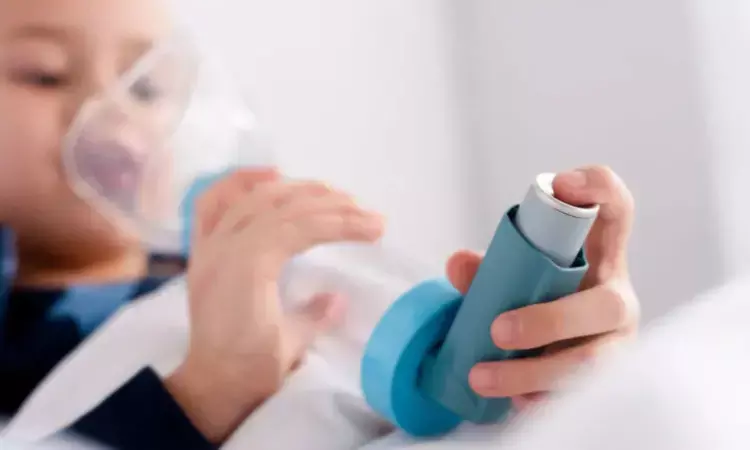- Home
- Medical news & Guidelines
- Anesthesiology
- Cardiology and CTVS
- Critical Care
- Dentistry
- Dermatology
- Diabetes and Endocrinology
- ENT
- Gastroenterology
- Medicine
- Nephrology
- Neurology
- Obstretics-Gynaecology
- Oncology
- Ophthalmology
- Orthopaedics
- Pediatrics-Neonatology
- Psychiatry
- Pulmonology
- Radiology
- Surgery
- Urology
- Laboratory Medicine
- Diet
- Nursing
- Paramedical
- Physiotherapy
- Health news
- Fact Check
- Bone Health Fact Check
- Brain Health Fact Check
- Cancer Related Fact Check
- Child Care Fact Check
- Dental and oral health fact check
- Diabetes and metabolic health fact check
- Diet and Nutrition Fact Check
- Eye and ENT Care Fact Check
- Fitness fact check
- Gut health fact check
- Heart health fact check
- Kidney health fact check
- Medical education fact check
- Men's health fact check
- Respiratory fact check
- Skin and hair care fact check
- Vaccine and Immunization fact check
- Women's health fact check
- AYUSH
- State News
- Andaman and Nicobar Islands
- Andhra Pradesh
- Arunachal Pradesh
- Assam
- Bihar
- Chandigarh
- Chattisgarh
- Dadra and Nagar Haveli
- Daman and Diu
- Delhi
- Goa
- Gujarat
- Haryana
- Himachal Pradesh
- Jammu & Kashmir
- Jharkhand
- Karnataka
- Kerala
- Ladakh
- Lakshadweep
- Madhya Pradesh
- Maharashtra
- Manipur
- Meghalaya
- Mizoram
- Nagaland
- Odisha
- Puducherry
- Punjab
- Rajasthan
- Sikkim
- Tamil Nadu
- Telangana
- Tripura
- Uttar Pradesh
- Uttrakhand
- West Bengal
- Medical Education
- Industry
High risk of asthma in children with orofacial defects, finds study

Taiwan: A recent study has shown that children with orofacial defects face a higher risk of developing asthma, with a possible contribution from oral microbiota in their early months. The study was published online in the journal Pediatric Pulmonology on July 20, 2023.
Patients with congenital orofacial defects, cleft palate (CP), cleft lip (CL), and cleft lip and palate (CLP) have continuous exposure of the respiratory system to the microbiome from the oral environment, offering opportunities for mucosal immunity development in the airway.
The study was conducted in two parts by Hsin-Chun Huang, Kaohsiung Chang Gung Memorial Hospital and Chang Gung University, Kaohsiung, Taiwan, and colleagues, They aimed to analyze data on asthma occurrence in infants with cleft lip, cleft palate, and CLP and the composition of the salivary microbiome. Also, they evaluated the oral microbiota and its association with the risk of childhood asthma development.
For this purpose, the researchers retrospectively analyzed patient data from the research database of Chang Gung Memorial Hospital from 2004 to 2015 by multivariable regression. Disease diagnoses were defined by ICD codes. Asthma must also fulfil the criteria for receiving treatment with selective β2 agonistic or/and inhaled corticosteroid within 1 year. A prospective analysis was performed of the saliva microbiome from 2016 to 2020 among 10 healthy term infants and 10 CLP infants on postnatal 7th day, 1 month, and 6 months by next-generation sequencing.
The study led to the following findings:
- Asthma and nonasthma groups included 988 and 3952 patients, respectively.
- The incidence of asthma development was higher in patients with CP than in CL and CLP groups (aOR: 5.644).
- The species composition of the microbiome at 1 and 6 months was significantly different between infants with CLP and healthy infants.
"Children with orofacial defects have a higher risk of developing asthma with a possible contribution from oral microbiota in the early months of life," the researchers concluded.
Reference:
Chen, L., Huang, F., Li, C., & Huang, C. Salivary microbiome and asthma risk in children with orofacial defects. Pediatric Pulmonology. https://doi.org/10.1002/ppul.26582
Dr Kamal Kant Kohli-MBBS, DTCD- a chest specialist with more than 30 years of practice and a flair for writing clinical articles, Dr Kamal Kant Kohli joined Medical Dialogues as a Chief Editor of Medical News. Besides writing articles, as an editor, he proofreads and verifies all the medical content published on Medical Dialogues including those coming from journals, studies,medical conferences,guidelines etc. Email: drkohli@medicaldialogues.in. Contact no. 011-43720751


